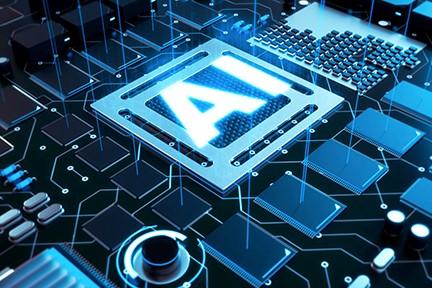AI/ML 101 for High School Educators
Are you interested in understanding Artificial Intelligence and Machine Learning? Would you like inspiration on how to integrate it into your High School classes? Not sure where to start? Join us this summer for three introductory webinars.
Are you interested in understanding Artificial Intelligence and Machine Learning? Would you like inspiration on how to integrate it into your High School classes? Not sure where to start? Join us this summer for three introductory webinars.

Selected as the National AI Institute for Foundations of Machine Learning (IFML) by the National Science Foundation (NSF) in 2020, we are partnering with the Texas Advanced Computing Center (TACC) to widen the knowledge and teaching of Machine Learning and AI in High Schools. Join us as we kick off the summer with our AI / ML webinar series!
We will host three webinars:
What is Artificial Intelligence and Machine Learning?
Date: 06/14/2021
Time: 10:00-11:00am CT
Location: Virtual
Presented by Joydeep Biswas
Artificial Intelligence and Machine Learning have grown in popularity recently, fueled by recent successes in several domains, including image recognition, decision making, and robotics. But what actually constitutes "artificial intelligence"? How is "machine learning" related? What are the open challenges, limitations, and ongoing research in these areas? How did it all begin, and where are we heading? This talk will cover an introduction to AI and ML, including a historical perspective, and will offer some ways to think about these questions.
(The registration may require at UT EID which is available to anyone and can be obtained via a brief registration process at https://idmanager.its.utexas.edu/eid_self_help/?createEID&qwicap-page-id=F5445E684A08C8CB)
______________________________________________________________
Applications of AI
Date:06/28/2021
Time: 10:00-11:00am CT
Location: Virtual
Presented by Raymond Mooney
Computers that can understand and communicate in human language is a foundational goal of AI and has many applications that are increasingly impacting our everyday lives. This includes systems that recommend news and entertainment, engage in task-oriented or chit-chat conversations (e.g. Siri and Alexa), filter spam from email, fact-check on-line information, and translate from one language to another. This talk will review AI work on these and other natural language applications and discuss relevant ethical issues on their societal impacts.
(The registration may require at UT EID which is available to anyone and can be obtained via a brief registration process at https://idmanager.its.utexas.edu/eid_self_help/?createEID&qwicap-page-id=F5445E684A08C8CB)
____________________________________________________________________
AI and Society
Date: 07/08/2021
Time: 10:00-11:00am CT
Location: Virtual
Presented by Ken Fleischmann
How can we design AI to benefit society? In this talk, I will discuss the stakes involved in ensuring that AI is aligned with the values of end users and other stakeholders, I will describe the global and contemporary approach that I take to teaching the ethical implications of AI, and will provide examples of AI-based projects that are designed to benefit society drawn from the work of Good Systems, a UT Grand Challenge. I will also introduce some of the educational opportunities here at UT Austin, including our Signature Course on Ethics of AI and the new undergraduate major in Informatics.
(The registration may require at UT EID which is available to anyone and can be obtained via a brief registration process at https://idmanager.its.utexas.edu/eid_self_help/?createEID&qwicap-page-id=F5445E684A08C8CB)
About the Institute for Foundations of Machine Learning - a National AI Research Institute
Designated by the National Science Foundation (NSF) in 2020, we are the National AI Institute for Foundations of Machine Learning (IFML). We develop the key foundational tools for the next decade of AI innovation leveraging the combined forces of The University of Texas at Austin, University of Washington, Wichita State University, and Microsoft Research. Our researchers create new algorithms that can help machines learn on the fly, change their expectations as they encounter people and objects in real life, and even bounce back from deliberate attempts by adversaries to manipulate datasets.
This program is supported by the National Science Foundation Award FAIN 2019844.